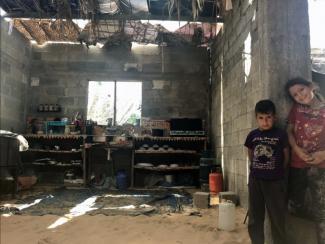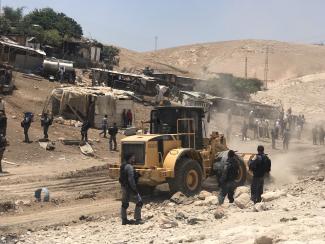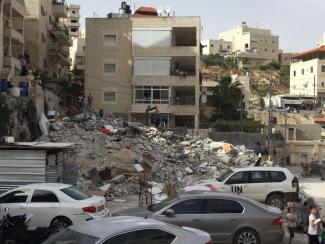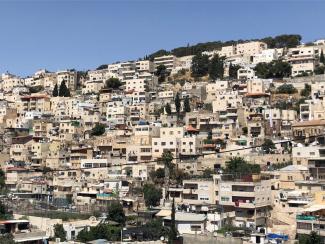The number of housing units in substandard conditions across the Gaza Strip increased dramatically since mid-2014 as a direct result of hostilities that took place that year. Nearly four years later, over a third of the homes that sustained some type of damage (some 59,000 out 171,000) are yet to be repaired.
The Monthly Humanitarian Bulletin | June 2018
$4.8 million urgently required for trauma management and emergency healthcare response to Gaza demonstrations. Housing survey reveals that 43,700 substandard homes in Gaza require full reconstruction or emergency shelter assistance. Military order allowing the demolition of new unlicensed structures in Area C within 96 hours from the issuance of a notice, frozen, pending decision by Israeli Supreme Court. Palestinian families move out of the Batan al Hawa neighbourhood in East Jerusalem due to coercive environment by Israeli settler presence.
In this document
The main article in this month’s Bulletin concerns the rehabilitation needs of the thousands of Palestinians in Gaza who have been seriously injured since 30 March in the ‘Great March of Return’ demonstrations along Israel’s perimeter fence. It is estimated that over 1,400 Palestinians may suffer from a long-term disability due to the severity of the injuries incurred. The Ministry of Health in Gaza is coordinating rehabilitation care for discharged patients, with the support of a variety of Health Cluster partners. This additional burden to the already fragile health system in Gaza is taking place against the backdrop of deteriorating living conditions and severe funding shortfalls for humanitarian agencies.
In recent months, the Israeli authorities have passed or advanced new legislation that will significantly limit the ability of individual and human rights organizations to challenge the demolition or seizure of Palestinian properties in Area C and East Jerusalem.
Although the number of casualties recorded during the ‘Great March of Return’ demonstrations in Gaza declined during June (see infographic), the health sector has continued to struggle with the cumulative caseload of serious injuries, particularly those requiring long-term rehabilitation.
In recent decades, Israeli settler organizations, with the support of the Israeli authorities, have taken control of properties within Palestinian neighbourhoods in East Jerusalem and established settlement compounds.














